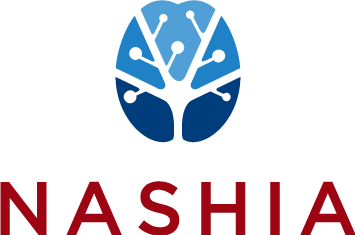A nationally recognized model, overdose fatality review (OFR) is being used by a growing number of communities to strengthen their community-based responses to the opioid epidemic by generating recommendations to address system, agency, population, research, and policy needs. OFRs help multi-disciplinary collaborations understand their overdose trends, identify missed opportunities for prevention and intervention to implement innovative, community-specific overdose prevention strategies. You can learn more about OFRs at www.OFRTools.org.
Join us for:
An overview of the impact of substance use for individuals with brain injury
Explanation of the OFR process and findings
Outline of how state brain injury programs can partner with local OFRs
Highlight the importance of early screening and partnerships to influence practices and policies
Presenters
Melissa Heinen, RN, MPH
Overdose Fatality Review (OFR)/Harm Reduction Manager
Institute for Intergovernmental Research (IIR)
Melissa Heinen is a manager for the Institute for Intergovernmental Research (IIR). She is responsible for providing overdose and suicide fatality review training and technical assistance. She has more than 20 years of experience working in injury and violence epidemiology and prevention at the local, state, regional, and national levels.
Anastasia B. Edmonston, MS, CRC
TBI Partner Grant Coordinator
Maryland Behavioral Health Administration
Office of Older Adults and and Long Term Services and Supports
Anastasia Edmonston, MS, CRC, currently serves as the Project Coordinator for the Maryland Behavioral Health Administration’s Federal TBI Partner Grant. In this capacity she provides coordination of Project initiatives including; training on the topics of TBI, survivor-centered thinking and planning to professionals who work in the fields of aging, behavioral health and addiction (with a focus on the link between addiction and brain injury) and law enforcement. Ms. Edmonston has worked in the field of rehabilitation services for individuals with traumatic and acquired brain injuries for over 30 years in both inpatient and outpatient services, as a case manager, program coordinator, champion and vocational rehabilitation counselor. She obtained her MS in Rehabilitation Counseling from Boston University, is a Certified Rehabilitation Counselor, as well as a certified Behavioral Health First Aid Instructor. She also received training and mentoring from Diane Greider around principles of Survivor Centered Planning. She earned a post graduate certificate in Instructional Systems Development from the University of Maryland, Baltimore County in 2014.
Certificate/CEs
Certificate of Attendance (Until May 2026) -
Free for Members/$15 for Non-Members
Social Work CEs (Until May 2026) -
$10 for Members/$15 for Non-Members



